第66章 CHAPTER XX.(3)
See how strong he is! He can almost stand on his legs! Look how he laughs! He's just as cunning as he can be. And oh! I was going to speak about that box. I wouldn't have him sleep in that old packing-box. There are little wicker cradles at the store--I saw them last week--they don't cost much, and you could bring one up in the carriage. There's the other baby, crying, and I don't know where Pomona is. Just you mind him a minute, please!" and out she ran.
I looked out of the window. The horse still stood harnessed to the carriage, as I had left him. I saw Pat's old shawl lying in a corner. I seized it, and rolling him in it, new clothes and all, Ihurried down-stairs, climbed into the carriage, hastily disposed Pat in my lap, and turned the horse. The demeanor of the youngster was very different from what it was when I first took him in my lap to drive away with him. There was no confiding twinkle in his eye, no contented munching of his little fists. He gazed up at me with wild alarm, and as I drove out of the gate, he burst forth into such a yell that Lord Edward came bounding around the house to see what was the matter. Euphemia suddenly appeared at an upper window and called out to me, but I did not hear what she said. I whipped up the horse and we sped along to New Dublin. Pat soon stopped crying, but he looked at me with a tear-stained and reproachful visage.
The good women of the settlement were surprised to see little Pat return so soon.
"An' wasn't he good?" said Mrs. Hogan as she took him from my hands.
"Oh, yes!" I said. "He was as good as he could be. But I have no further need of him."I might have been called upon to explain this statement, had not the whole party of women, who stood around burst into wild expressions of delight at Pat's beautiful clothes.
"Oh! jist look at 'em!" cried Mrs. Duffy. "An' see thim leetle pittycoots, thrimmed wid lace! Oh, an' it was good in ye, sir, to give him all thim, an' pay the foive dollars, too.""An' I'm glad he's back," said the fostering aunt, "for I was a coomin' over to till ye that I've been hearin' from owle Pat, his dad, an' he's a coomin' back from the moines, and I don't know what he'd a' said if he'd found his leetle Pat was rinted. But if ye iver want to borry him, for a whoile, after owle Pat's gone back, ye kin have him, rint-free; an' it's much obloiged I am to ye, sir, fur dressin' him so foine."I made no encouraging remarks as to future transactions in this line, and drove slowly home.
Euphemia met me at the door. She had Pomona's baby in her arms.
We walked together into the parlor.
"And so you have given up the little fellow that you were going to do so much for?" she said.
"Yes, I have given him up," I answered.
"It must have been a dreadful trial to you," she continued.
"Oh, dreadful!" I replied.
"I suppose you thought he would take up so much of your time and thoughts, that we couldn't be to each other what we used to be, didn't you?" she said.
"Not exactly," I replied. "I only thought that things promised to be twice as bad as they were before."She made no answer to this, but going to the back door of the parlor she opened it and called Pomona. When that young woman appeared, Euphemia stepped toward her and said: "Here, Pomona, take your baby."They were simple words, but they were spoken in such a way that they meant a good deal. Pomona knew what they meant. Her eyes sparkled, and as she went out, I saw her hug her child to her breast, and cover it with kisses, and then, through the window, Icould see her running to the barn and Jonas.
"Now, then," said Euphemia, closing the door and coming toward me, with one of her old smiles, and not a trace of preoccupation about her, "I suppose you expect me to devote myself to you."I did expect it, and I was not mistaken.
Since these events, a third baby has come to Rudder Grange. It is not Pomona's, nor was it brought from New Dublin. It is named after a little one, who died very young, before this story was begun, and the strangest thing about it is that never, for a moment, does it seem to come between Euphemia and myself.
End